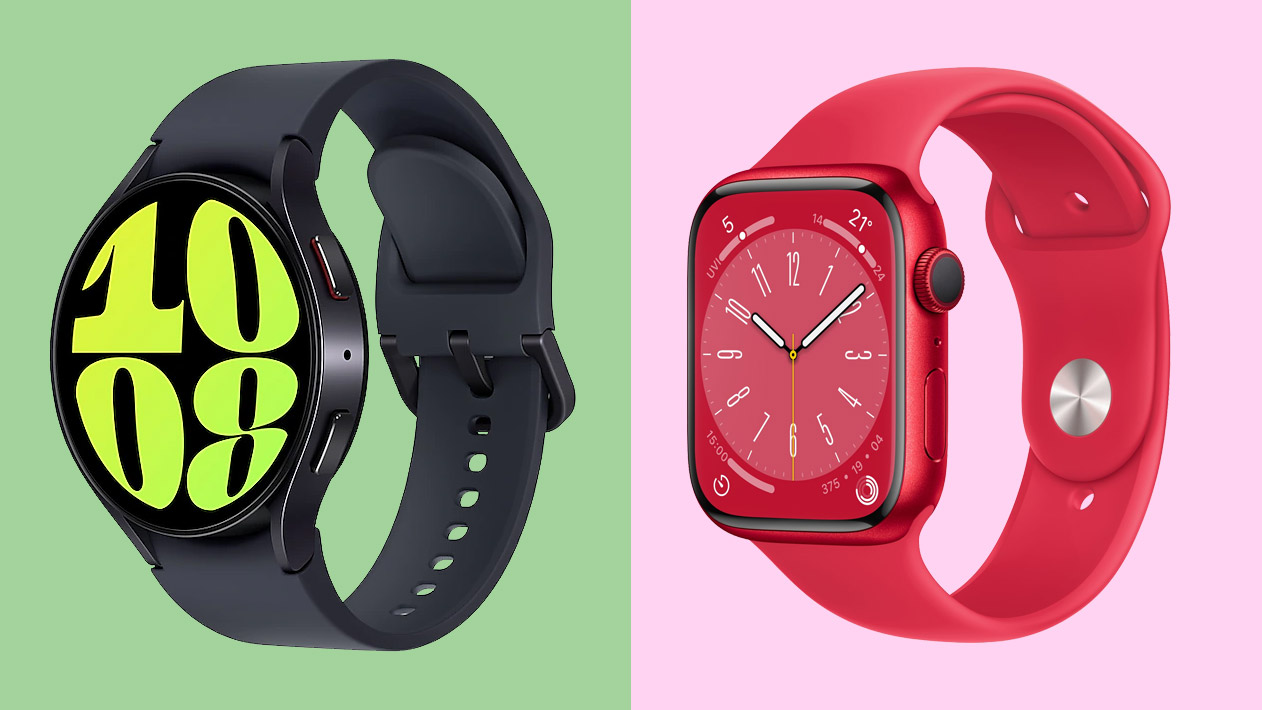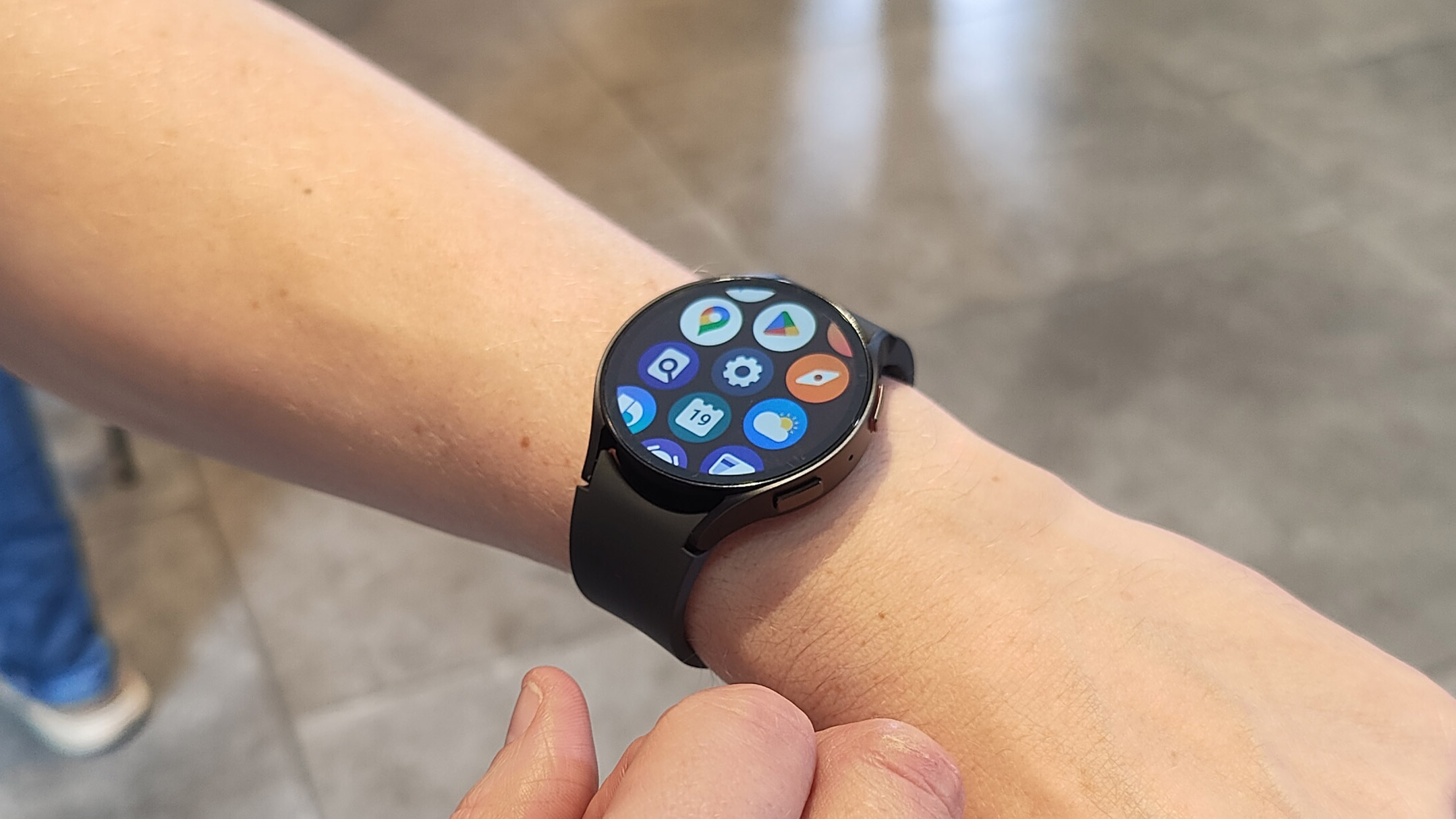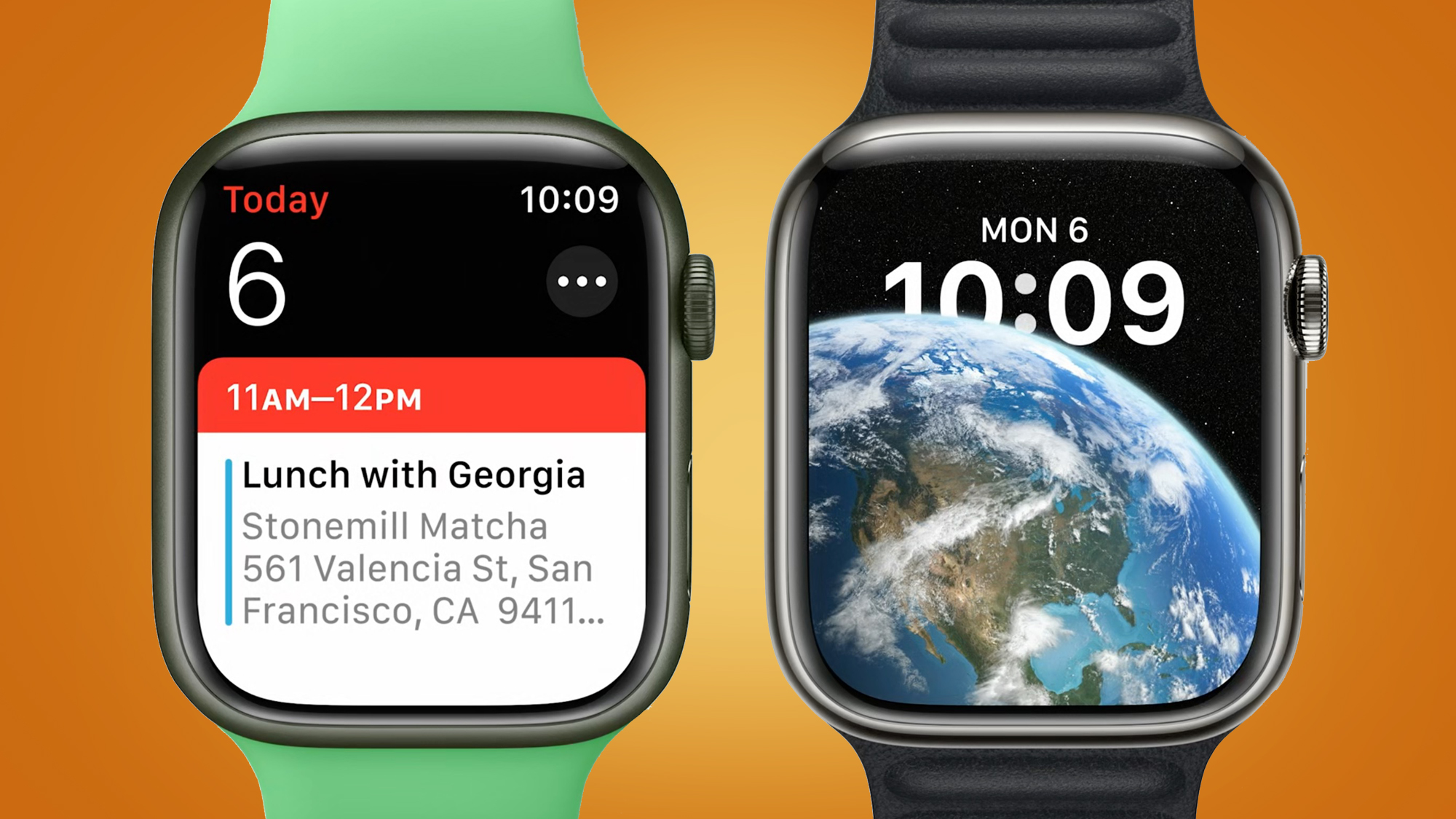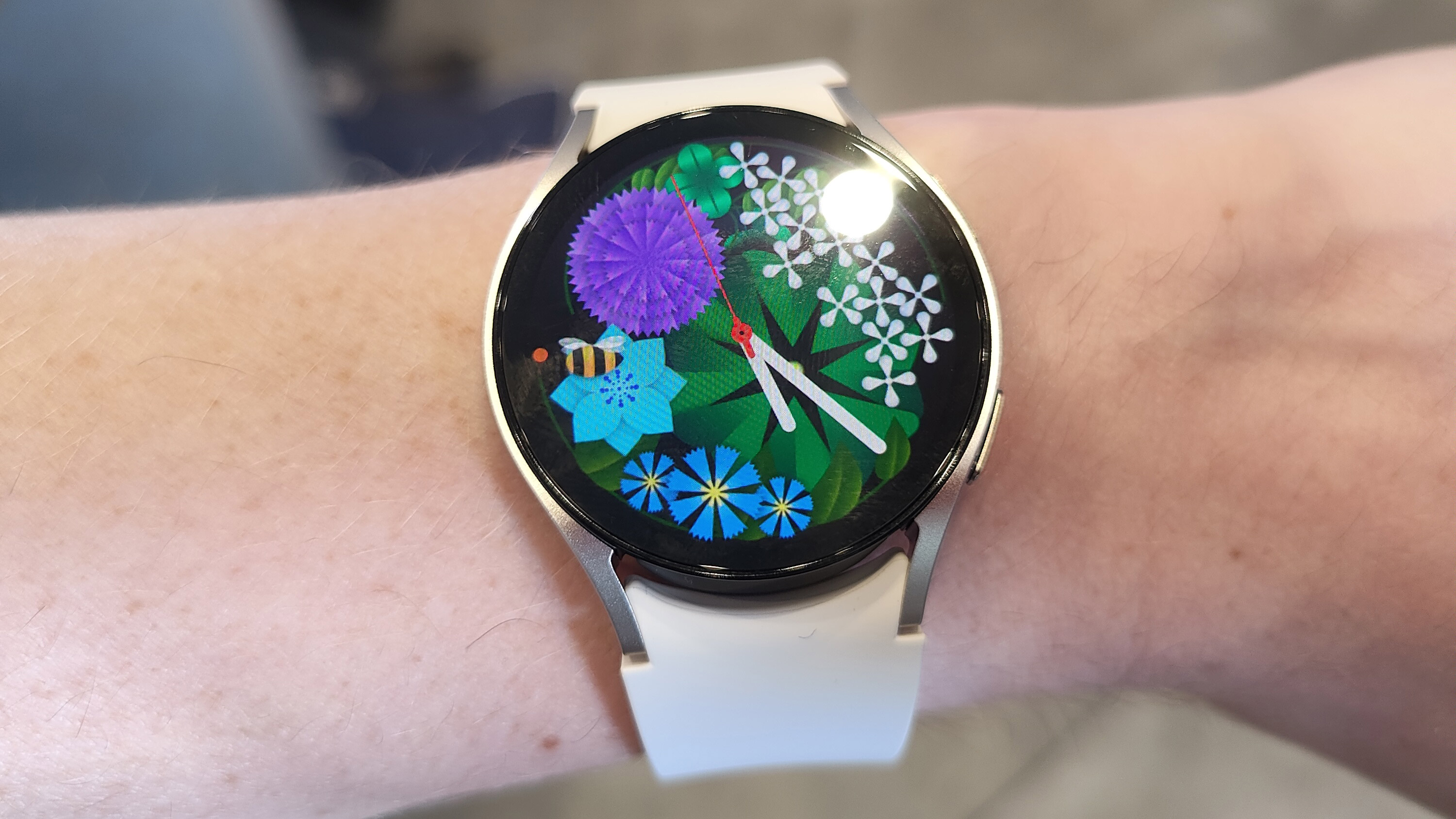Samsung Galaxy Watch 6 vs Apple Watch Series 8: Which smartwatch comes out on top?
We put Samsung’s latest watch against its iOS rival

Sign up for breaking news, reviews, opinion, top tech deals, and more.
You are now subscribed
Your newsletter sign-up was successful
In some ways, the Samsung Galaxy Watch 6 vs Apple Watch Series 8 is rendered moot – if you’re on a Samsung phone, the former is likely to be a great choice, while the latter is much more useful if you’re on iOS.
Still, it’s useful to compare the two, whether you’re shopping for a new phone and wondering which wearables ecosystem is better, or you’re looking to rate the quality of the new Samsung Galaxy Watch 6 against its closest rival, the Apple Watch Series 8.
Samsung Galaxy Watches have been consistently held up as some of the best Android watches around, and some of the best smartwatches overall. Combining chic designs and interesting new features, Samsung, along with the Google Pixel Watch, has made the brand the comparison point du jour for Google’s OS users when it comes to debating the merits of the platform against iOS.
While we’re expecting the Apple Watch Series 9 in September, we’ve put together an early comparison of the Samsung Galaxy Watch 6 vs Apple Watch Series 8.
Samsung Galaxy Watch vs Apple Watch Series 8: Specifications
| Component | Samsung Galaxy Watch 6 (40mm) | Apple Watch Series 8 (41mm) |
| Display | 432x432 Super AMOLED always-on display | 352x430 always-on OLED (Square) |
| Dimensions | 38.8 x 40.4 x 9.0 mm | 41 x 35 x 10.7mm |
| Colors | Graphite, Gold, Silver | Midnight, Red, Silver, Starlight |
| GPS | GPS, GLONASS, BEIDOU, Galileo | GPS, GLONASS, Galileo, QZSS, and BeiDou |
| Compass | Yes | Yes |
| Altimeter | Yes | Yes |
| Water resistance | 5ATM, IP68 | 5ATM, IP68 |
| NFC payments | Samsung wallet | Apple Pay |
| Sensors | Heart Rate, Temperature Sensor, Echocardiogram, Gyro, Light Sensor, Accelerometer | Heart Rate, Temperature Sensor, Echocardiogram, Gyro, Light Sensor, Accelerometer |
| Compatibility | Android (10 and above) | iOS |
| Storage | 16GB | 32GB |
Samsung Galaxy Watch vs Apple Watch Series 8: Price

The Apple Watch Series 8 remains, at the time of writing, at the $399 / £419 / AU$629 price point at the low end, although deals are available. This is for the aluminium construction and the 41mm version.
That’s actually more expensive than Samsung’s alternative, with the Samsung Galaxy Watch 6’s 40mm version retailing at $299 / £289 / AU$549.
There’s a $100 / £120 / AU$80 difference between the two, with those differences in prices reflected in the larger versions of the watches too. For that reason, the Samsung Galaxy Watch 6 wins out here.
Sign up for breaking news, reviews, opinion, top tech deals, and more.
- Winner: Samsung Galaxy Watch 6
Samsung Galaxy Watch 6 vs Apple Watch Series 8: Features

Price isn’t everything, however, and in tech, you often get what you pay for. But does the Apple Watch Series 8 justify its premium pricing?
In all honesty, it depends on how much you’d like to use the built-in 4G capability of an LTE watch. The 4G-enabled watches cost an additional premium on top of the base price, making the LTE-enabled Apple Watch 8 still more expensive than Samsung’s LTE Watch 6. Still, if you’re desperate to use WhatsApp and stream music on your watch away from your phone, it’s the only way to go.
Other than that, both feature similar specs, but one of the biggest differentiators is the way the temperature sensor is used. While Samsung Galaxy Watch 6 (and its predecessor) use it to monitor for changes in temperature that could be indicative of an infection and incoming illness, Apple’s implementation is less broad.
On the Apple Watch Series 8, your device will use it to assist with ovulation tracking, but doesn’t tend to go beyond that.
One area the Apple Watch Series 8 has the Samsung Galaxy Watch 6 beat is in crash detection, however. While both devices will understand if you’ve taken a tumble with Fall Detection, Apple Watch Series 8 can detect differences in air pressure that can be telltale signs of an airbag being deployed.
In terms of overall fitness features, however, both are essentially identical, and many of the third-party apps you can install are the same across both - such as the popular running app, Strava. However, Apple also integrates with Apple Fitness Plus, allowing you to see your heart rate on-screen in real-time during Fitness Plus workouts. With its advanced running and cycling metrics, Apple might just pip it here.
- Winner: Apple Watch Series 8
Samsung Galaxy Watch 6 vs Apple Watch Series 8: Battery Life

Battery life has long been a bit of an Achilles heel for the Apple Watch, and the Series 8 (and Series 7) charge more quickly but still run you around a day of normal use. You can eke out more by turning the Always-On display off, getting to a day and a half.
On the other hand, Samsung is bringing 30 hours with its Samsung Galaxy Watch 6’s Always-On display on, up to 40 with the feature turned off. However, our fitness editor tested the watch in its first 24 hours, and found it was drained to 10% in just 18 hours after a full charge, a night’s sleep and a 35-minute workout.
On paper, the Samsung Galaxy Watch 6 the big winner here. In practice, until we can do more tests, it’s going to be a draw.
- Winner: Draw
Samsung Galaxy Watch 6 vs Apple Watch Series 8: Early verdict
As we’ve noted earlier in this article, it’s tough to pick a winner if you’re already engrained in Android or iOS.
Without spending more hands-on time with the Samsung Galaxy Watch 6, though, it certainly feels like the Korean manufacturer’s latest effort is a world-beater, but the Apple Watch Series 8 is essentially the only buy for iOS users and measures up well, providing you don’t run or cycle enough to want one of the best Garmin watches.
With (on paper) better battery life, a sharper display, and a more analog-inspired design, Samsung’s latest offering could convince some to switch fitness trackers, and OS, by extension. For more on Samsung's latest, check out our run-down of everything we learned about the Samsung Galaxy Watch 6 at the summer Samsung Unpacked event.

Lloyd Coombes is a freelance tech and fitness writer for TechRadar. He's an expert in all things Apple as well as Computer and Gaming tech, with previous works published on TopTenReviews, Space.com, and Live Science. You'll find him regularly testing the latest MacBook or iPhone, but he spends most of his time writing about video games at Dexerto.